In recent years, there has been a great evolution in the field of software testing with new trends coming into IT industry services. The introduction of new technologies has brought the latest updates in software design, development, testing, and delivery. The top priority of businesses across the globe is cost optimization. In doing so, most of the IT leaders believe in the integration of the latest IT techniques for their organization.
Digital transformation is another important point of focus for the industries and the businesses that are ranking high on cloud computing and business analytics.Factors like quality and reliability are being given major attention, which results in the reduction of software application errors, improving the security and application performance.
Today, the companies are integrating their testing, earlier in the software development cycle, with testing methods like Agile. This also involves the establishment of the T-CoEs to match the testing mechanism with business development building products that are ‘Ready for Business’.
Some companies also hire independent testing companies for their software testing needs. In this way, they incur less cost on testing and do not even require in-house resources.
There are several other important trends in the software-testing world. Thus, there is a strong need to adapt the latest testing trends for all the software industries in the world, which will help them to adapt to the requirements of the modern world.
Here are major trends for 2024 that are changing the face of software testing:
DevOps

DevOps is a widely known practice of bringing development and operations teams together to bring an effective DevOps culture. This DevOps culture is about a shared collaboration between the development (Dev) and operation (Ops) teams.
It is a modern code deployment approach that significantly helps in the collaboration and coordination among various teams and accelerates the software delivery process with faster releases. This process ensures effective feedback to deliver quality software and ensures improved customer satisfaction.
In the year 2024, DevOps teams anticipate a notable surge in the adoption of cloud-native technologies. Notably, Kubernetes, Docker, and serverless computing are poised to further establish their significance, enabling expedited and highly efficient processes for application development, deployment, and scaling.
Artificial Intelligence

Software testing is the only premeditated way where an application can be observed under certain conditions and where testers can recognize the risks involved in the software implementation.
Testing, on the other hand, is gradually transitioning to greater automation to ensure maximum precision and accuracy in the journey towards digital transformation. In an attempt to make the application foolproof, the world is turning towards Artificial Intelligence (AI). This implies that instead of manual testing and human intervention, we are moving towards a situation where machines will be slowly taking over.
Chatbots have evolved to become more intelligent and conversational, leveraging natural language processing and machine learning algorithms. They provide immediate and personalized support to users, resolving common queries and issues efficiently.
Adaptive AI takes chatbot capabilities further by continuously learning from user interactions and adapting its responses to provide more accurate and tailored solutions, resulting in higher customer satisfaction and improved efficiency in handling complex tasks. Overall, these technologies have become indispensable tools for businesses seeking to deliver exceptional customer service and optimize operational processes.
Automation Testing

With today’s enterprises adopting agile and DevOps processes, it becomes a mandate for these practices to leverage automation testing. Basically, Test automation is critical for continuous delivery (CD) and continuous testing (CT), as it can speed up the release cycles, increase test coverage and ensure quality software release.
Software automation testing involves the usage of tools and test scripts to test the software, and these automated test results are more reliable. Hence, test automation speeds up the testing process, ensures faster releases and delivers accurate results. Read the significance of automation testing for enterprises.
Low Code No Code Automation

Low code and no code automation have become even more prominent, revolutionizing the way businesses and individuals create software solutions. These platforms enable users with little to no coding experience to develop applications and automate processes easily. They provide drag-and-drop interfaces, pre-built modules, and templates, accelerating development cycles and reducing time-to-market. With the increasing accessibility of these tools, more people can actively participate in software development and automation, empowering organizations to streamline their operations and drive innovation. Click here to read about low code automation.
Extensive use of Hyperautomation
Hyperautomation enables low code and no code platforms to leverage AI and ML algorithms for intelligent decision-making, data analysis, and predictive capabilities. It enhances the automation capabilities by allowing users to automate more complex and cognitive tasks, resulting in improved efficiency, productivity, and scalability.
Digital Immune System
The Digital Immune System holds immense significance as cybersecurity threats continue to evolve and become more sophisticated. It plays a crucial role in protecting digital infrastructure, networks, and systems from cyberattacks, data breaches, and other malicious activities. With the rapid expansion of the digital landscape, including the IoT and cloud computing, the Digital Immune System acts as a comprehensive defense mechanism, employing advanced technologies like artificial intelligence, machine learning, and behavioral analytics to detect and respond to threats in real-time. It helps organizations and individuals safeguard their sensitive information, maintain trust in digital interactions, and ensure the continuity of operations in an increasingly interconnected world.
Robotic Process Automation (RPA)
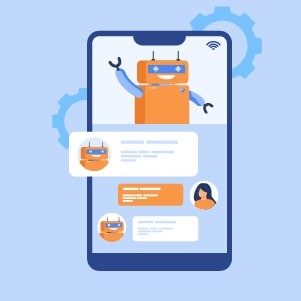
New and emerging technologies, such as Artificial intelligence (AI), cognitive computing, the Internet of Things (IoT), and machine learning are revolutionizing all industries. Some implementations like self-driving cars are set to change the digital world.
RPA continues to enable digital businesses to automate repetitive and rule-based tasks, resulting in increased operational efficiency and productivity. RPA empowers organizations to streamline their workflows, reduce errors, and enhance overall accuracy, leading to improved customer satisfaction. Integration of RPA with AI and ML technologies has expanded its capabilities, allowing for more sophisticated automation and intelligent decision-making. Overall, RPA remains a key driver of digital transformation and process optimization in 2024.
Accessibility Testing

In today’s digital age with connected devices and mobile apps running in millions, there is a need for these mobile & web apps to be accessible to differently-abled people. However, there are various innovative products, applications and websites that are not made accessible to people with certain disabilities.
But, today, it is a mandate that businesses should leverage accessibility testing. This sort of software testing not only focuses on verifying app usability, but it also makes sure that the application can be used by people with many disabilities, including visual, auditory, physical, speech, cognitive, language, learning, and neurological disabilities. Read why accessibility testing is important for your business.
The significance of accessibility testing has grown even more due to increased awareness and legal requirements surrounding inclusivity. With advancements in technology and a focus on digital experiences, accessibility testing ensures that websites, applications, and software are usable by people with disabilities. Accessibility testing helps organizations comply with accessibility standards, avoid potential legal issues, and reach a broader audience. As inclusivity becomes a core value, accessibility testing leads to a positive user experience, enhances brand reputation, and promotes equal opportunities for all individuals.
Performance Testing

Today’s businesses become successful only if their business-critical mobile and web applications perform well under varying loads and should essentially deliver great performance. If these business apps crash when numerous users tend to use it, then users will dump such apps and would never wish to get back to such apps.
Only those mobile and web apps that perform seamlessly under varying loads are bound to deliver a great customer experience (CX). In order to get high-performing digital mobile and web apps, leverage performance testing from next-gen testing service providers.
Performance testing of IoT-based apps holds immense significance in present times. With the rapid proliferation of IoT devices and their integration into various industries, the performance of these apps directly impacts user experience and satisfaction. As IoT apps rely on real-time data exchange and communication between devices, performance issues can lead to critical failures and security vulnerabilities. The complexity and scale of IoT ecosystems demand rigorous testing to ensure seamless functionality, optimal resource utilization, and scalability.
With the increasing adoption of AI and machine learning in IoT, performance testing becomes crucial to evaluate the efficiency and responsiveness of intelligent algorithms and decision-making processes.
Regression Testing
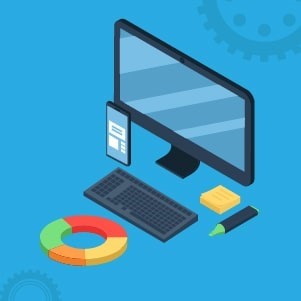
Regression testing is one of the software testing types that should be performed when there is a change made in the application or when there is a new feature added to the application. With this testing practice, tests are conducted to ensure and check the previously developed and tested software still performs well even after a change is made in the software.
This is an effective functional testing type that should be taken up especially when there are continuous changes made in the application, as this testing process checks for any new bug or error in the existing software and is more so a verification process for the software. Read when regression testing should be taken up.
Integration Testing
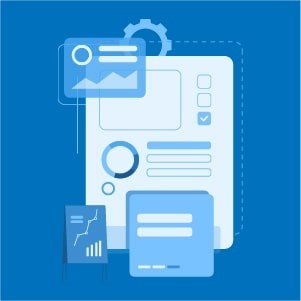
In Software testing, it is important that every system component gets integrated with the different application modules to ensure smooth working of the entire system. Enterprises following agile and DevOps should take up integration testing to ensure that the application modules function effectively when they are grouped together.
Thus, Integration testing should be leveraged by businesses as there are numerous benefits with it such as the process helps to identify system-level issues such as module integration issues, broken databases, etc. and helps to identify them while developers resolve them at the earliest. Explore the benefits businesses get with Integration Testing.
User Testing
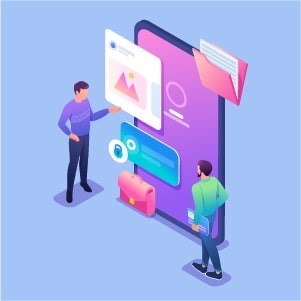
One of the important types of software testing that is gaining more popularity in recent years is user testing. This form of user testing refers to a technique wherein real users take up the role of testers to test the interface and functions of applications, websites, mobile applications, or services.
In this method, the real users test the apps by considering various real-time use cases and the feedback from these users helps in improving the application for the end-users. This is a usability technique to gain valuable insights from users regarding how they feel about the product. Read significance of user testing for businesses.
Selenium Testing
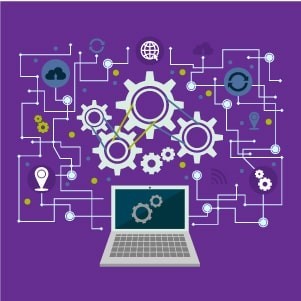
Businesses adopting agile and DevOps processes should leverage test automation using various test automation tools for faster releases and to get quicker time-to-market. Selenium is one of the most commonly used test automation tool which is a lightweight tool and developer-friendly tool, commonly used for automating web applications.
Selenium provides a playback tool for authoring functional tests without the need to learn a test scripting language (Selenium IDE). Read this blog to know about why businesses should prefer selenium testing tool for their test automation.
UAT (Acceptance Testing)

As soon as a product is developed, even before it is moved to production, the product owner will check its functionality and usability by performing the User acceptance testing. This is actually the final phase before launch where the stakeholders check if the product is as per their requirements and also check if there are any errors while moving ahead with the functionalities.
Primarily, a UAT is an important and final phase to test whether the software is functioning as per the requirements.
UAT remains significant in 2024 as it plays a crucial role in ensuring that software applications meet the needs and expectations of end-users. It allows stakeholders to validate the functionality, usability, and performance of the system before its deployment, minimizing the risk of costly errors or user dissatisfaction. UAT provides an opportunity for users to provide feedback and identify any potential issues or areas for improvement, leading to a higher quality product and enhanced user experience. In the era of rapid technological advancements and evolving user preferences, UAT enables organizations to adapt to changing requirements and deliver software that aligns with user expectations.
Infrastructure as Code (IaC)
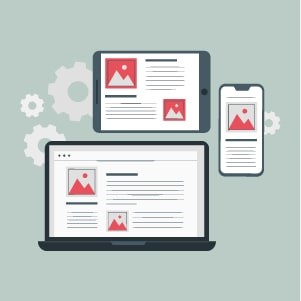
The next-generation infrastructure management technologies are transforming the way we manage IT infrastructure. The extensive implementation of virtualization and cloud infrastructure has shifted the bottleneck from allocating servers to configuring them. The arduous process where it used to take a couple of weeks or months to assign a server, has been transformed into a process of a minute or two.
Read more and identify how IaC is changing the world of software.
Other Trending Blogs:
Read our thought-provoking blogs on trends in software testing industry
To know more about our services, please email us at [email protected]